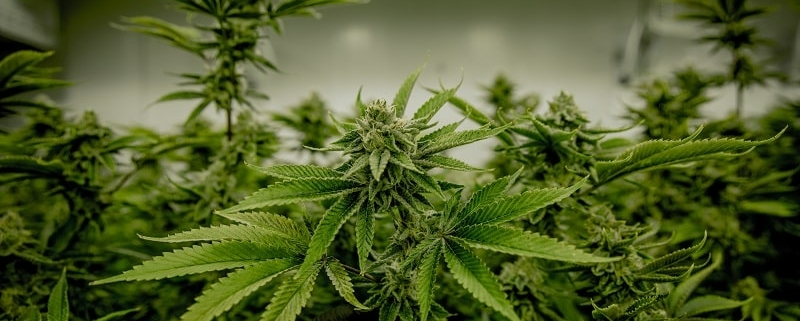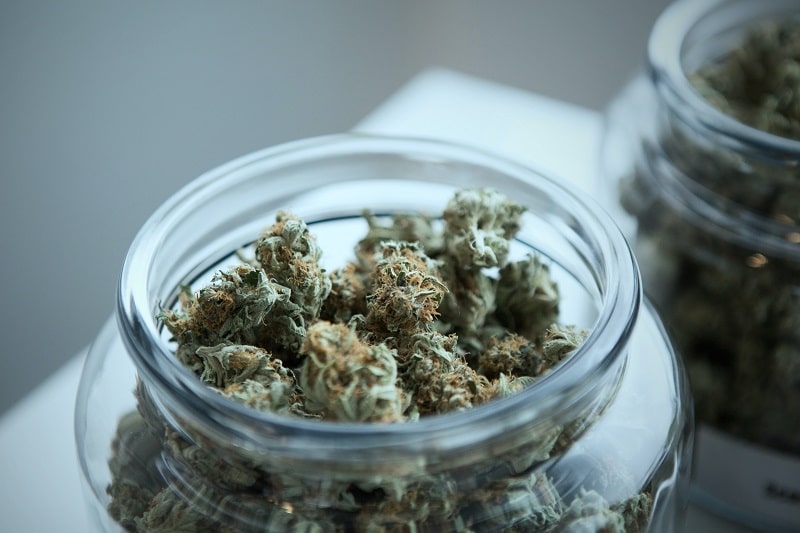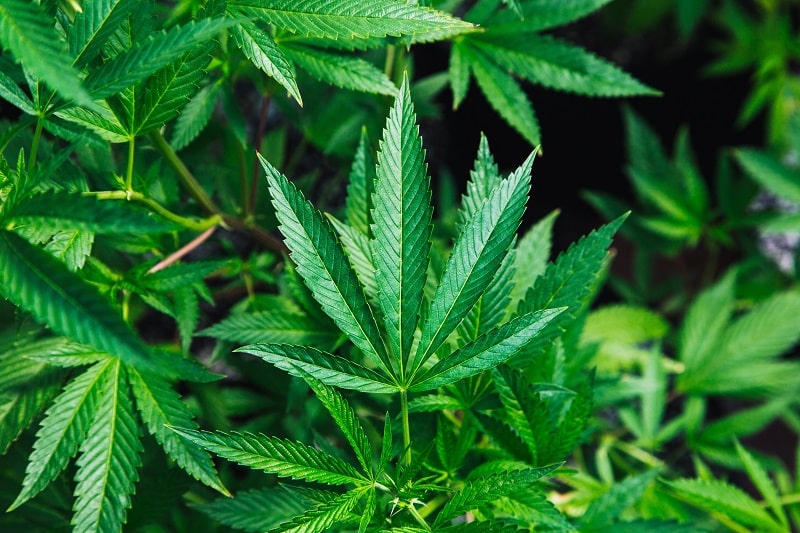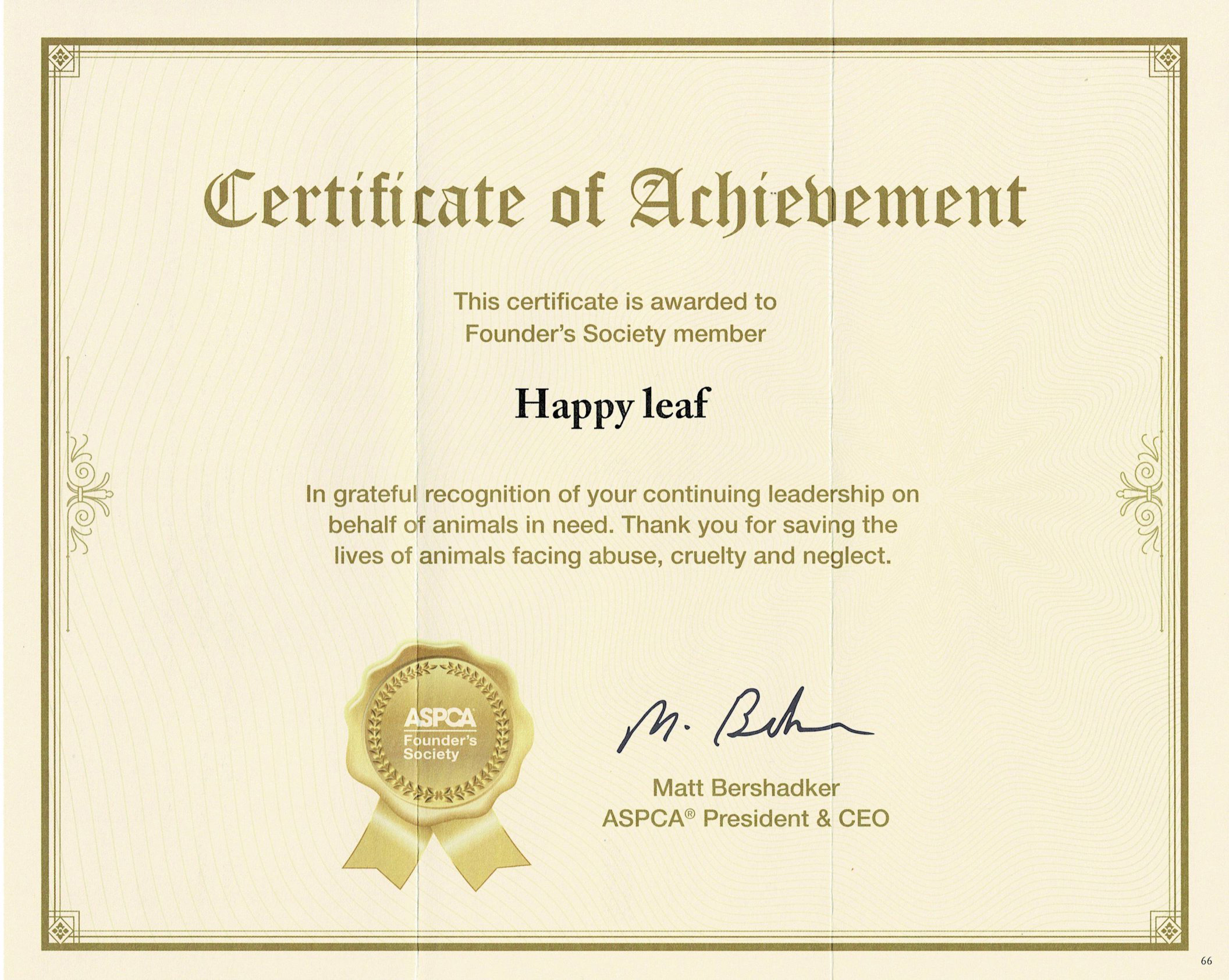What is THCA: How is it Different from THC?
The cannabis plant is famed for its many cannabinoids, and if you have some knowledge of cannabis, you’re probably already familiar with the likes of CBD and THC. However, there are many more lesser-known cannabinoids that are stepping into the spotlight, offering their own unique benefits. THCA is one of them. But what is it? And how do THC and THCA compare? Read on for all you need to know.
Before we look at THC vs THCA or vs Delta 9 and other cannabinoids, it’s important to have a clear and precise understanding of what THCA is. In simple terms, it is a cannabinoid. Its full name is tetrahydrocannabinolic acid, and as the name implies, it’s closely related to THC.
In fact, THCA is classed as a “precursor” to THC. It forms in the cannabis plant before THC and can then be transformed into THC later on. However, even though the two are closely connected, there are some big and notable differences between THCA vs THC. For example, unlike THC, THCA has no psychoactive properties and won’t get you high.
THC vs. THCA: What’s the Difference?
So, we know that THCA is yet another cannabinoid on the ever-expanding cannabis menu, but how does it actually compare to THCA? Well, when it comes to what is THCA vs THC, the first difference comes in the chemical structure. Specifically, THCA molecules are formed as carboxylic acids, meaning that they have a slightly different form to THC, with an extra carboxyl ring.
That may only seem like a minor difference, but it has a big effect, as it means that THCA does not have the intoxicating power of THC. It’s not able to make people feel high or euphoric like THC does, and it’s not generally as potent or powerful as THC. However, it can offer many similar health benefits, such as anti-inflammatory properties and possible neuroprotective effects.
How THCA Become THC?
As mentioned above, THCA is the precursor to THC. That means that it can change into THC. How does this happen? Well, THCA can become THC via a process called decarboxylation. That may sound complicated, but it actually just means that the plant needs to be heated in order to lose its extra carboxyl ring and become THC.
Potential Benefits and Effects
THCA hasn’t been researched as extensively or thoroughly as many other cannabinoids, like THC and CBD. So there’s still a lot we don’t know about this cannabinoid and only a limited amount of evidence to support some of the theories about what it can do and how it can help people. However, some of the potential benefits discovered so far include:
- Anti-inflammatory: THCA may be able to ease or soothe inflammation in various areas of the body. This could help to soothe pained or inflamed joints and muscles, for example, giving THCA possible medical applications.
- Anti-nausea: Just like THC, THCA has been shown to provide notable benefits for patients who are experiencing feelings of nausea. It may prove to be a useful treatment for cancer patients who often feel nauseous as a result of chemotherapy.
- Neuroprotective: Some studies have shown evidence to suggest that it may offer neuroprotective benefits, too. This means that it could help to protect brain cells against death and degradation, possibly preventing certain neurodegenerative disorders.
- Reducing seizures: Finally, other studies have shown that it can also be a useful cannabinoid in reducing the risk of seizures in patients who suffer from epilepsy or similar conditions.
How to Use THCA
Since THCA turns into THC when it’s heated, it’s not the easiest cannabinoid to use. It can’t be smoked, nor can you simply buy a THCA flower pound to vape or dab. Instead, the best options are usually to use some kind of THCA concentrate or oil. You can also invest in the best THCA flower varieties from your local marijuana dispensary and make your own oils, rather than smoking them.
Is THCA Legal?
The legal situation around cannabis products is changing all the time and can vary greatly from state to state. For example, Oregon’s marijuana law is different from California’s or Texas’s law, and so on. In regard to THCA, it’s not technically banned at the federal level, but is still under strict control, due to its close connection with THC.
Can It Show Up in a Drug Test?
Yes, THCA will show up on a drug test, just like THC does. So, if you have a drug test scheduled and want to avoid getting a positive result, you may want to avoid using any products that contain THCA.
Where Can You Find THCA?
The best place to find any and all cannabis products, including THCA products, is at your local marijuana dispensary. There, you’ll find a huge range of official cannabis products from trusted brands and licensed manufacturers. You can also consult with the expert, knowledgeable staff, who will be able to advise you on the best ways to use it and what benefits it might be able to offer you. Contact us for further details.
As you can see, THCA is quite an interesting cannabinoid. There’s a lot of interest in this particular cannabinoid, and further studies will be needed to determine how useful and beneficial it can truly be. In the meantime, hopes are high that it may be able to offer many medicinal and therapeutic benefits.

Ian Baker handles content marketing at Happy Leaf Portland. There are 5 years that he is deeply involved in the cannabis field. He had 3 years of experience as a Budtender and thanks to his desire to achieve more, he has a career move. Currently he works as a content manager.









